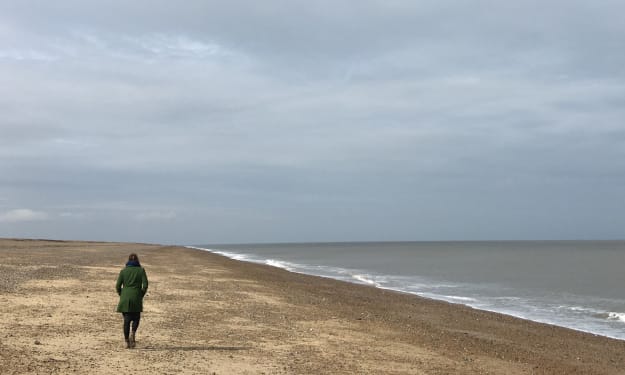Tyndale

Through the bars at his window, he looks to the square below and the small timber scaffold put up in its centre. Rising from the stage, an eight foot post looms upright, rings of iron set at intervals through which rope or chains can be passed.
“I was able to fetch something nice from the kitchens this morning, Master Tyndale”. The heavy door had been unbolted, opened and closed without his realising. “The first of three gifts I have for you”. A familiar old face floats in the gloom: Johannes, the warden at the castle prison at Vilvoorde offers out a board with the usual hard bread and cheese but with some slithers of cured ham and a cut peach.
One last peek he thinks, turning back to the window. Under and around the post, three men in black shirts busy themselves with faggots of wood; sticks of hazel entwined with fresh cut fir. The greenery is a kind inclusion. With luck, and calm wind, the harsh smoke given off by the living foliage chokes a man before the fire puckers his flesh. The flag at the top of the neighbouring tower, he notices, billows, unapologetic. Wretched thing.
Master Tyndale moves from his viewing to take the board. He sets it on his lap at the foot of the bed before picking at the assortment.
“Do you know the story of St Agnes?” he asks Johannes, in Flemish – one of seven languages he knows. Neither man believed in the veneration of saints, but they had often spent the small hours of the night testing their recollection of passions and martyrs like this. Tyndale knew many from his training as a priest and time spent studying theology at the University of Oxford. Johannes is surprisingly versed on the topic. The old warden shakes his head, so he presses on. “She found herself in a situation not unlike my own, but when the officers bound her to the stake she prayed, and the flames parted around her and did her no harm”.
“Neatly done”, Johannes allows, filling a cup with water for his inmate. “What happened to her then?”.
“Well, they were left with no choice but to take her head off with a sword”.
“Hardly fair recompense for her faith”, Johannes posits somberly. Tyndale nods, but today, for the first time, he appreciates the worth in the transaction Agnes made with God.
The ham is good. He takes a bite of the fruit, juice running into the beard that has grown out in his eighteen months of imprisonment, passed from the authorities in Antwerp to rot in this fortress outside Brussels. They, the agents of the Holy Roman Empire, had breathed down his neck as he had moved between the free cities of Europe – Hamburg, Wittenberg, Cologne, Worms – before his arrest in Belgium. They must have suspected he would languish in Vilvoorde but cannot have counted on him finding a friend in his jailor. Though the scrape of the guard’s polearms on the stone corridors were a steady reminder of the extent of their relationship, he was fetched extra shirts and hats over winter, offered ink and paper to write with, and supplied with candles that let the two men natter in warmth and light.
“The second gift”, Johannes says, into the silence that had started to swell. He takes out a little black book to hand to Tyndale. “Confiscated possessions are not customarily returned to heretics, but what harm can this bring?”.
“You might be surprised”. Tyndale replies, leafing through the pages with discernible fondness.
“These are the original then?”, Johannes enquires of the miniscule scribblings written in a language he does not understand.
Tyndale confirms all. The unassuming black notebook comprises the entirety of the New Testament, translated directly from the original Greek, Latin and Hebrew editions into English. It was strange that, while nearly all the nations of Europe now had Bibles in their own vernaculars, the same could not be said for Tyndale’s homeland. More than a decade it had taken to compile his great work. He had fled from England. Learned languages. Watched and supervised as patiently as he might while the printing presses in Cologne stamped his words out in black ink, copy after copy. Planned with crooked merchants and smugglers the covert distribution of his contraband. Slept with one eye open, so that his countrymen could understand and interpret in their own way the word of God, and see that it made no mention of church or priests, penance or popes.
How could he have anticipated how far-reaching his mission would become? In London, his friend and patron, Humphrey Monmouth had given him board and lodge before they agreed it would be safer for the both of them to ship him off to the European mainland. A few shillings from Monmouth and a couple of other merchant acquaintances who deemed his vision worthy were all that he had to his name at that time. All the while though, benefactors sympathetic to his cause emerged one-by-one from the woodwork to send his prints back to England. When agents from Rome, hoping to quash the situation soundlessly, bought up all the copies they could lay hands on to burn them at St Paul’s Cross, they had not foreseen that the publishers and purveyors would return the profits to his, Tyndale’s, accounts so that he might persist. In one swoop, the wholly unexpected and substantial sum of £35* found its way to him and funded the printing of unprecedented numbers. Now, like a hawk amongst a murmuration of starlings, the Holy Roman Empire could only clutch at so many. For every copy snatched away and destroyed, three made it onto the tables of farmers, smiths, clerks and courtiers.
On this rumination, his hand moves to lay the book over his heart, in the pocket of his shirt. He wipes at his eyes, and watches as Johannes mirrors the gesture. A short while passes.
“Do you know the story of St Florian?”, the warden asks of him this time.
“I do not”, Tyndale admits, frankly. In all their talks, it had been as much a pleasure to learn from the scholarly jailor as it had been to teach.
“Understandable, he has little prominence in France and England”. Johannes looks a little pleased that he has beaten Tyndale at their contest in this instance. “Like Agnes, he was sentenced to be burned too. But he so rattled his Roman captors with a pronouncement of his eagerness to climb into the pyre in the name of God, that they instead thought it more prudent to tie a millstone around his neck to sink him in a river”.
Tyndale mulls over this. “Are you suggesting I try the same?”.
“It would not hurt your chances”. The warden looks as severe as ever. Another, longer while passes.
“We both know pleas have been made in your defence”, Johannes starts again.
“One even by Master Cromwell”, Tyndale interjects, a slight swell of pride rising once again at the thought. Thomas Cromwell, Lord Privy Seal and Secretary of State of England; personal pet of Henry VIII, and a formidable lawyer with a bite as bad as his bark had rallied to Tyndale’s cause. “If he could not sway the courts of Antwerp though, then it is done”, Tyndale concedes.
“The courts have rejected all pleas”, Johannes confirms. The pride in the scholar’s chest subsides, replaced with despair once more. “But I will not”, Tyndale’s friend continues. “I know in my heart, the work you have done is the work of God, how could it not be?”.
“In some ways, I envy you, Master Tyndale”. The warden takes his turn to peer through the barred window, gauging the progress below. “And in some others not. But few of us are intended to tackle missions as genuine as yours”. Both men wipe at their eyes again. “And I will not have you roasted alive as some forsaken heretic. Listen. I have instructed my executioner to strangle you at the post instead. This is all I can offer you as my third gift”.
“You do not have the authority for that, surely?” Tyndale asks.
“This is my bloody prison”, the jailor proclaims, and the two men embrace, for the first and last time.
The warden calls in his two guards, one of whom claps shackles of iron around the old priest’s wrists. Down dark stairs he is led. He closes his eyes – and feels the warmth – as he marches out into the sun.
*£35 at the time this story takes place (6th October 1536) would be approximately equivalent to $20,000. Hopefully, this is in keeping with the spirit of the Vocal Little Black Book challenge.
About the Creator
Tom Williams
A PhD student who loves writing anything and everything BUT their PhD thesis






Comments
There are no comments for this story
Be the first to respond and start the conversation.